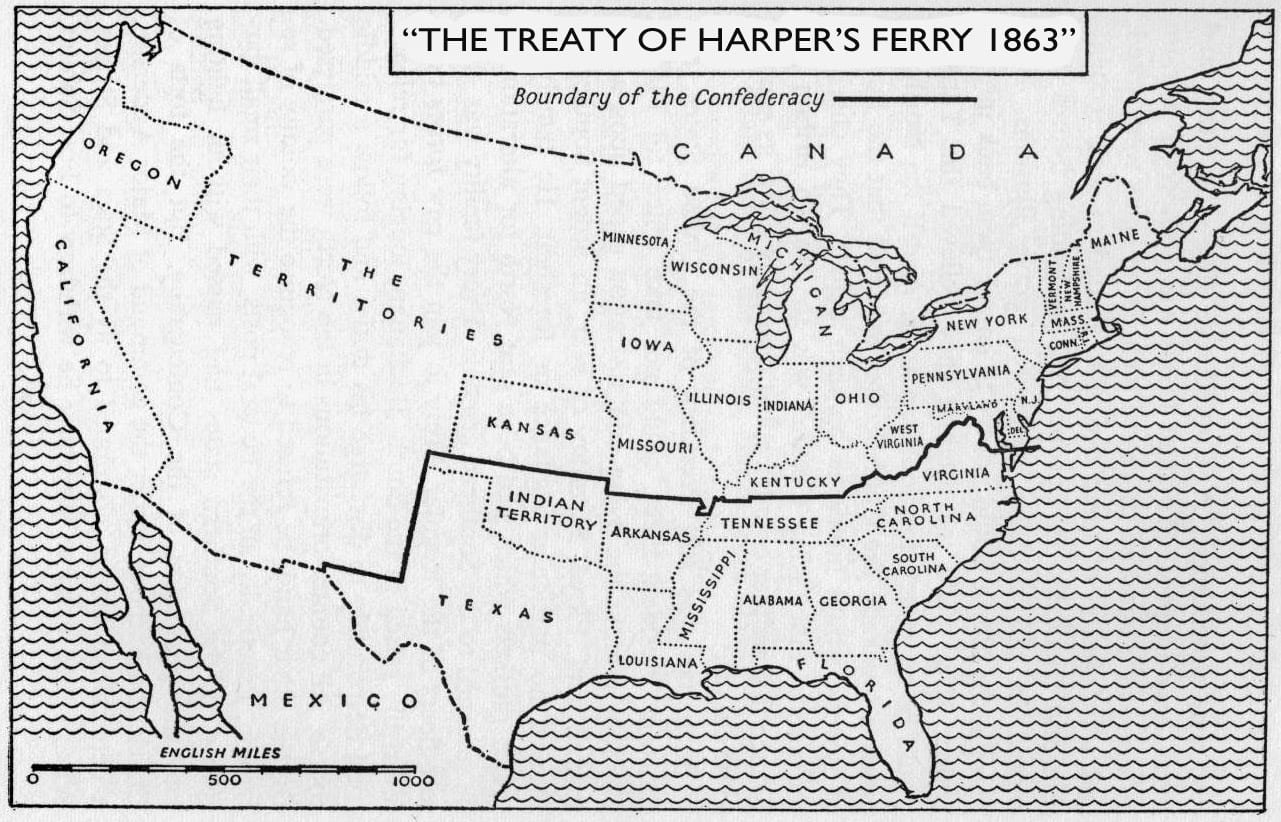
Fantasies: Trollope’s Brittanula, Churchill’s Battle of Gettysburg
“Tales for Our Time” is an ongoing series of audio readings by the commentator Mark Steyn. Being of conservative disposition, Mr. Steyn tends to select vintage classics, but his recitations are straightforward, non-political, and congenial to the ear. Agatha Christie, John Buchan, Jane Austen, G.K. Chesterton, F. Scott Fitzgerald all adorn his repertoire. They remind us of what good writing was—before what Steyn calls “12-year-old prose-plonkers looking for Twitter clicks.”
Trollope’s Great Reset
In April, “Tales for Our Time” featured Anthony Trollope’s The Fixed Period. It is a flight of fancy, like his Chronicles of Barsetshire, an imaginary English county. Trollope published The Fixed Period in 1882. It involves an imaginary South Pacific island named Brittanula, settled by young New Zealanders. Mr. Steyn writes:
The book was a flop when first published in 1882, and it remains an oddity in Trollope’s oeuvre. But these last two very strange years have brought it bobbing up to the surface. In the age of Covid and Climate, we have under-reported news stories about the vulnerable elderly slaughtered en masse in so-called “care homes”…. And so we come to Britannula, a former Crown Colony whose political class, as its president explains in our first episode, has been thinking outside the box and come up with its own Great Reset—the Fixed Period.
The Fixed Period
Trollope’s narrator, Britannula’s “President Neverbend,” explains how the island-republic solves the problem of old age: Reaching 67 1/2, each citizen is “deposited” in a luxurious “College of the Fixed Period.” There amid pleasant surroundings they are lovingly prepared, celebrated and honored for their termination and cremation within twelve months. The Fixed Period, Neverbend explains,
consists altogether of the abolition of the miseries, weakness, and fainéant imbecility of old age, by the prearranged ceasing to live of those who would otherwise become old…. Such old age should not, we Britannulists maintain…be prevented, in the interests both of the young and of those who do become old when obliged to linger on after their “period” of work is over.
WSC at age 67 1/2
“If Lee Had Not Won the Battle of Gettysburg”
Trollope’s fantasy puts me in mind of a stunning Churchill counterfactual: “If Lee Had Not Won the Battle of Gettysburg.” Churchill’s yarn has a happier and more uplifting ending. As much as I despise jargon and Newspeak, I will use a word I ordinarily shun. His Lee tale is “awesome.”
Churchill’s screed was explained in detail by Professor Paul Alkon, and excerpted on this website. Briefly, Robert E. Lee wins the Battle of Gettysburg and compels peace. Then, rising to the pinnacle of the Confederacy, he declares the South independent, and the slaves free. With their reverence for Lee, Southerners’ resentment is muted after he appeals to their better nature. There is no Jim Crow. or the dreadful injustices of the carpetbaggers and Reconstruction.
The USA and CSA evolve independently, and in 1905 join Britain and the Dominions to form the “English-Speaking Association.” This alliance is so potent that in 1914, it has only to declare against German aggression to prevent it. Thus, there is no Great War, no deposed monarchs, no Lenin, and no Hitler. Long before 1914, Disraeli becomes a Liberal social reformer, Gladstone a Tory imperialist, and Woodrow Wilson “the enlightened Virginian chief of the Southern republic.” (If you’re going to dream, dream big.)
Wilhelm II, democracy’s evangelist
By the time of writing (1930), Kaiser Wilhelm has advanced to head a conference on European Union—not the EU idea, but Churchill’s. That is: a Europe of free trade and peace among democratic nation-states. But Churchill, as narrator, has a warning. His Imperial Majesty may today occupy “the most splendid situation in Europe.” But let him not forget “that he might well have found himself eating the bitter bread of exile, a dethroned sovereign and a broken man loaded with unutterable reproach…if Lee had not won the Battle of Gettysburg.”
Cynics have said 1914 was “when the rot started.” What Churchill called “the drizzle of empires” led to Bolshevism, Fascism, Nazism, and another world war. Readers may find Churchill’s “Battle of Gettysburg” a thoughtful venture into what might have been. They may even agree with late Civil War historian Shelby Foote, to whom I sent a copy: “Churchill’s fantasy transcends all my objections to exploring the what-ifs and might-have-beens in that great war.”
N.B.
“If Lee Had Not Won the Battle of Gettysburg” appeared in Scribner’s Magazine, December 1930. It was republished in The Collected Essays of Sir Winston Churchill, 4 vols. (London: Library of Imperial History, 1975), IV: 73-84.
Churchill’s story was analyzed in depth by the Hillsdale College Churchill Project: click here. The full text is available for personal use but not for publication from this writer at [email protected].
Further reading
“Guelzo on Lee: ‘To Err on the Side of History’s Defaulters,” 2021
“Robert E. Lee and the Fashionble Urge to Hide from History,” 2019






